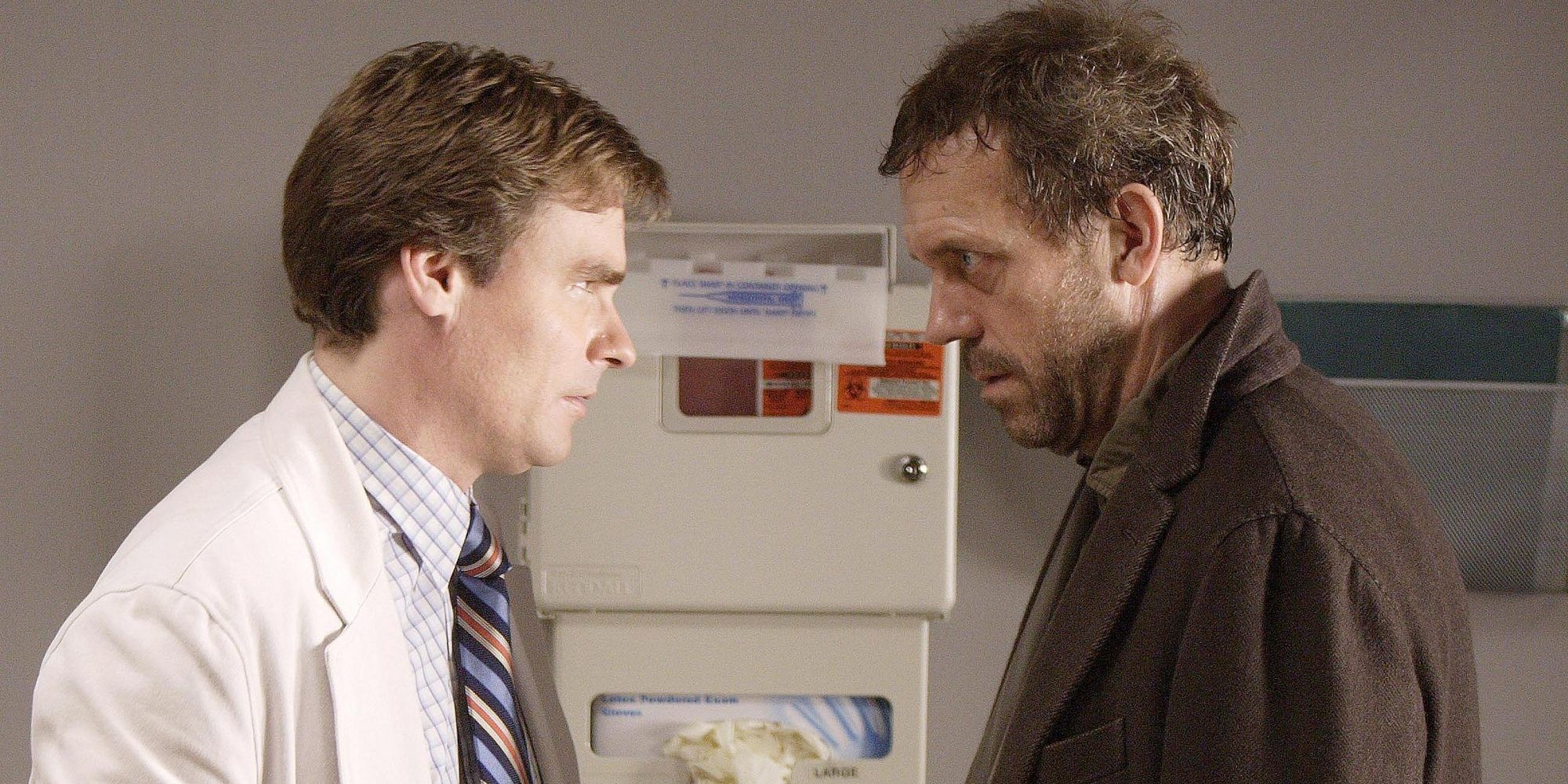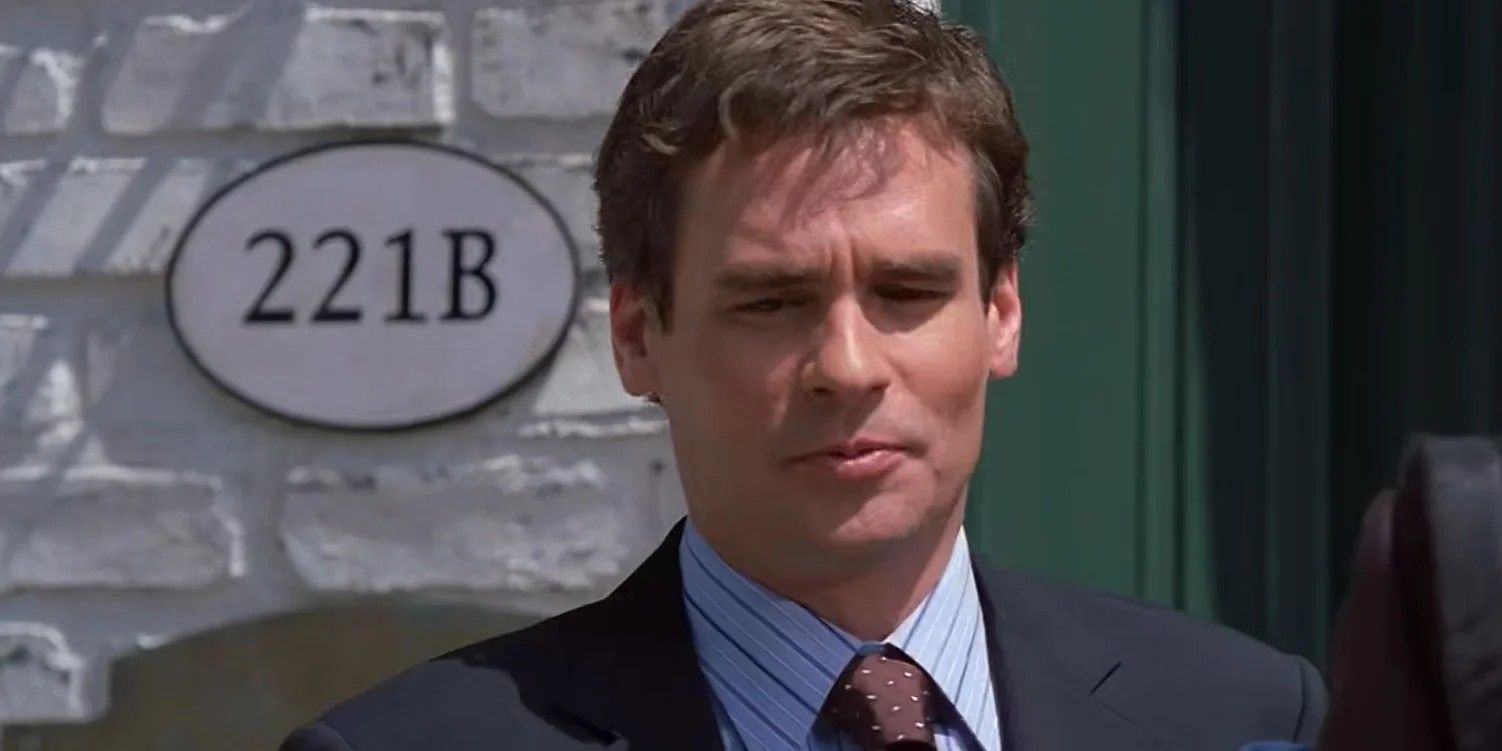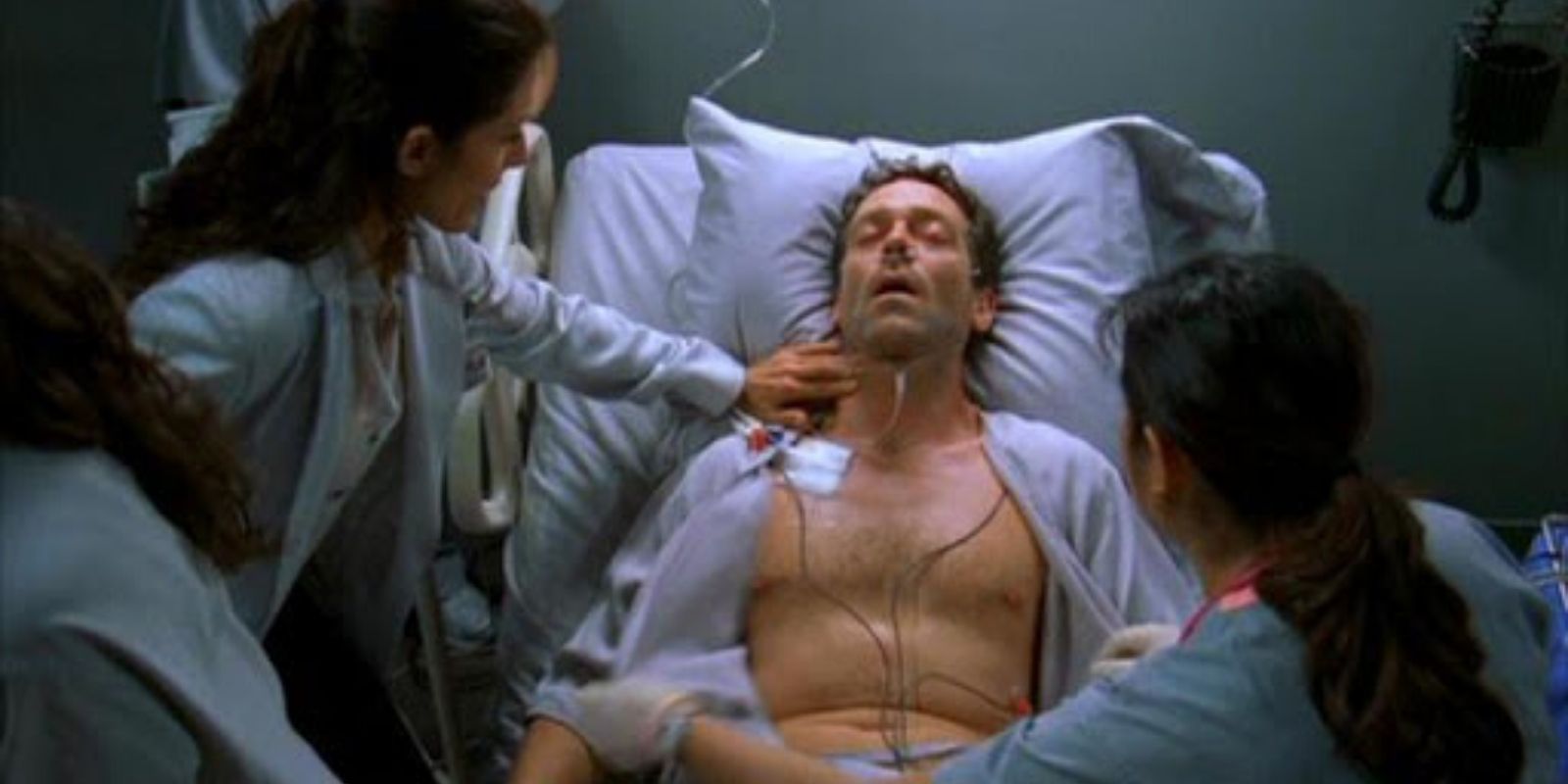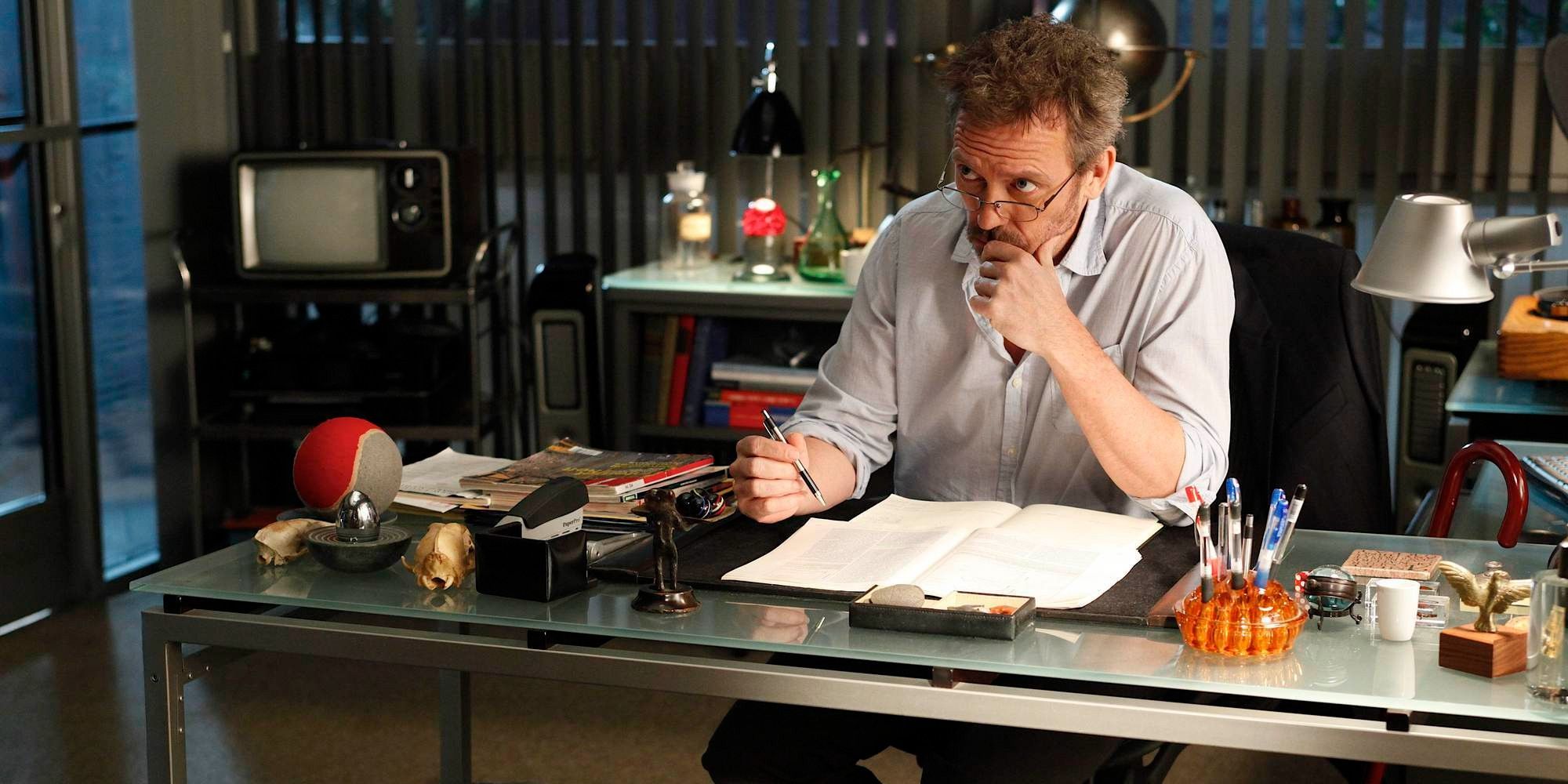Of the many adaptations and spin-offs of Sir Arthur Conan Doyle's Sherlock Holmes, House M.D. is one of the most subtle yet detailed versions of the character. House M.D. follows the charismatic physician, Gregory House, as he leads a team of doctors through some of the strangest medical cases on television. Dr. House, played by Hugh Laurie, is an irate and narcissistic yet highly intelligent man who seems to always have all the answers, though he often struggles when it comes to his personal life and relationships.
Sherlock Holmes is a character who was first written by Sir Arthur Conan Doyle in 1887. Holmes appeared in four novels by Doyle as well as numerous short stories, all of which proved incredibly popular. Holmes became famous among readers for his unerring wit and unique personality that ranged from cold and distant to animated and quick-thinking. A variety of adaptations have been created since including the BBC's Sherlock, Guy Ritchie's Sherlock Holmes, and CBS's Elementary. In particular, House M.D. is an interesting iteration of the character because of its focus on medicine, the love-to-hate quality of the main character, and the many specific references to Holmes to viewers could easily miss.
8 House's Addiction
One major connection between Dr. House and Sherlock Holmes is the doctor's addiction to painkillers. Throughout Doyle's writings, Sherlock bounces between many substances including tobacco, cocaine, and morphine. Holmes smoked a pipe often but would use the more serious drugs when he lacked an interesting case to think about. His friend and partner, John Watson, often disapproved of Holmes' relationship with substances and acknowledged them as his only vice. Watson's medical background often left him worrying about Holmes' physical and mental health when it came to drugs.
In House M.D., Dr. House struggles with a similar but more debilitating addiction to painkillers. While the habit appears to be casual and under control in earlier seasons of the show, House's drug use takes a turn for the worst, and he eventually goes to rehab for it. Like Holmes, House uses drugs as a way to stimulate his mind, though their motives and reasons vary. While cocaine keeps Holmes occupied, painkillers ease the pain of House's leg injury so that he can maintain his wits while he works.
7 J.W. As A Sidekick
The second most well-known character in Doyle's writings besides Sherlock Holmes is Dr. John Watson, and this fits nicely with the fact that House has a J.W. by his side as well in the form of Dr. James Wilson. John Watson acts not only as Holmes' closest friend and partner but also as his biographer. Watson appreciates Holmes' genius and believes it should be well-known to others, though his personality often grates on Watson. Furthermore, Watson is a major player in solving Doyle's mysteries alongside Holmes due to his medical background and athletic form.
As in many adaptations of Sherlock Holmes, House and Wilson have a strong yet complicated relationship. Because of their differences (mainly House being antisocial and distant and House M.D.'s Wilson being a good person who is kind and traditional) the pair work as foils to each other just as Sherlock and Watson do. Some particular details that align Wilson with Watson are Wilson's career as a doctor, his constant worry for House's health and drug use, and his role as a voice of reason and truth when House is struggling with a specific scenario.
6 221B
A small yet important detail that clues viewers into House M.D.'s connection to Sherlock Holmes is his home address. Throughout the series, House lives on 221B Baker Street, the same address as Sherlock Holmes. Furthermore, Sherlock Holmes and John Watson live together in Doyle's writings, which is how they come to know each other. Though House and Wilson meet after the former bails Wilson out of jail, the men do live together at times when Wilson is going through a divorce or other personal issues. This is one of the most blatant links between Sherlock Holmes and Gregory House.
5 Moriarty
Another vital connection to Sherlock Holmes is House M.D.'s use of another major Doyle character: Moriarty. Professor James Moriarty is Sherlock Holmes' arch nemesis. Like Holmes, Moriarty is a mastermind, though he uses his intelligence for crime. Most significantly, Moriarty and Holmes participate in a scuffle at the top of Reichenbach Falls that seemingly results in both of their deaths.
In a very similar vein, a man named Jack Moriarty appears in House M.D. as a figure set on taking out House. His reasoning is that House told Moriarty's wife about his affair, leading his wife to take her own life. Moriarty then returns to the hospital and shoots House before being shot himself by hospital security. The storyline matches up with Sherlock Holmes not only because of the shared name but because of the men both sustaining life-threatening injuries and House's consequent hallucinations about Moriarty coming after him.
4 House and Holmes Are Musically Inclined
Some of House M.D.'s smallest details relate to the character of Sherlock Holmes, and House's musical abilities fall under this category. Of his many skills, Sherlock Holmes is known to be an avid and talented violin player. Similarly, House plays a variety of instruments including the piano, organ, guitar, and harmonica. Though this connection is small, it certainly adds to House's character and his relationship with Sherlock Holmes.
3 Rebecca Adler
From the very beginning, House M.D.'s adaptation of Sherlock Holmes is made clear through the use of an important name in Sir Arthur Conan Doyle's books: Adler. In the Sherlock Holmes canon, Irene Adler is a witty and beautiful woman who appears in only one story, "A Scandal in Bohemia," but makes a significant impression on later Holmes adaptations. In the story, Adler is being investigated by Holmes but continues to outsmart him and avoid his traps. Though many versions of Sherlock Holmes include a romance between Holmes and Adler, the original story never had such a relationship.
In a similar sense, House M.D. includes their own character named Adler who appears for a short time but is significant in setting the connection between House and Holmes. Rebecca Adler is a kindergarten teacher who becomes the first mystery patient in the pilot of House M.D. After many wrong diagnoses, similar to Adler avoiding being caught by Holmes, House's team discovers that Adler suffers from a tapeworm infection. This story sets the tone for the rest of the series, wherein House must work with his colleagues to solve increasingly mysterious medical cases like Adler's.
2 House's Name Is Similar To Holmes
Another way Dr. House is like Sherlock Holmes that may seem obvious but can easily elude viewers is the similarity of their names. The name Holmes was unique when Sir Arthur Conan Doyle wrote it in the 19th century, and the name House is also unusual in this current time period. More significantly though, Holmes and House are similar because of their connotations. If Holmes is pronounced with a silent "L," the name turns into "Homes." In this way, it directly relates to the name "House." Once again, this detail is subtle yet adds greatly to the overall creation of House as Sherlock Holmes.
1 House and Holmes Fake Their Death
One final and significant moment that appears in both Sherlock Holmes' stories and House M.D. is the protagonists faking their deaths. Sir Arthur Conan Doyle originally intended Holmes to be dead after his aforementioned stand-off with Moriarty at Reichenbach Falls, however his readers' disappointment led to Holmes return, explaining that he faked his death to elude his enemies. House M.D. ends after season 8 in an incredibly similar way. In the series finale, House finds himself in a burning building and decides to fake his own death to avoid jail time and to spend time with Wilson as he dies of terminal cancer.
House M.D. is a Sherlock Holmes adaptation that succeeds at creating meaningful connections to Holmes that aren't cliche or overbearing. The series sticks to the heart of Sherlock Holmes, which is telling the story of an incredible and difficult character as he solves impossible mysteries. Because of this, Dr. House maintains his place as one of the most memorable and enjoyable television doctors to date.









